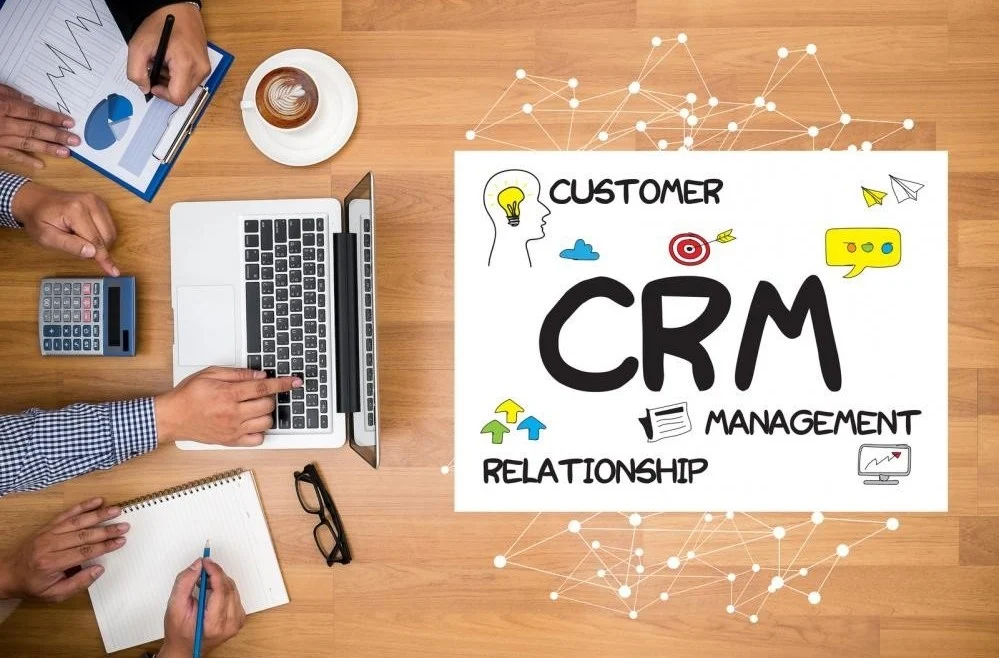Ad Code
Translate
Smart strategies for trading on crypto exchanges
October 20, 2025
Five Do’s For a Healthy Turnover That Bolsters Talent-Retention
October 20, 2025
Discover Honeybee Pharmacy (2025 Guide Important Consumer Tips)
October 14, 2025
What is Ozempic (semaglutide)? (Updated in 2025)
January 30, 2025
Posture Bra: Improving Back Support and Comfort
October 20, 2025
How To Find Suitable Properties In Cyprus?
October 20, 2025
10 Effective Strategies to Improve Domain Authority of Your Website
October 20, 2025
3 Essential Things to Consider When Buying CRM Software
Khabza Mkhize
January 10, 2024
Customer relationship management (CRM) software is overhauling the way that companies do business. Customers are the driving force of any business, and therefore cultivating relationships with your customers is crucial. CRM software is one of the most important tools that businesses can use to shine a spotlight on the people who buy their products and services.
That being said, there is such a wide variety of different types of CRM platforms out there nowadays that trying to decide which one to purchase can seem impossible. So, let us discover 3 of the most important factors to keep in mind when looking for the best CRM software for your business.
Accessibility
When shopping around for CRM software it is only natural that you want what is best for your company. Besides, investing in a high-quality CRM makes focusing on the customer much more conducive to success. Consequently, you must consider accessibility. When deciding on CRM deployment, you must often make a choice between a cloud (software-as-a-service/SaaS) or an on-premise solution. Both have advantages and disadvantages and just because you need one deployment option right now does not mean that you will not need another in the future. With a Cloud (SaaS) solution, you simply log into the cloud-based CRM using your Internet browser. All information resides on your vendor's server. This does, however, mean that internet access is required at all times, and if your connection fails, you will be unable to access your data.
Alternatively, with an on-premise solution, you own the software and it is hosted physically at your location. This provides direct access to the servers if you want to integrate your CRM with other customer applications. Nonetheless, although there are no recurrent subscription charges, you will need to have in-house IT personnel on hand at all times and you will also need to purchase the necessary hardware and software, which can lead to higher upfront costs. Above all, where access is concerned, aim to find a CRM that is flexible and capable of evolving alongside your company.
Customization
The best CRM solution for your business should be appropriately configured to your company's needs. Your CRM platform should, therefore, be adjustable and able to take into consideration your specific sales procedures and processes using your unique business terminology. What is more, employees from multiple divisions of your company must be able to access the CRM on a user-to-user basis. For instance, one of your customer service representatives will use your CRM differently to one of your marketing managers.
Essentially, your CRM should complement your business and ideally, it must be fully customizable. It should reflect everything from your sales process, to your marketing strategy, as well as your customer service activities and your contact management techniques. Consequently, it is also necessary to think about how much training will be required so that your employees can successfully use the CRM. Put simply, the easier it is for your staff to master the software, the more effective your CRM is likely to become when eventually in use.
Integration
When choosing a CRM for your business you must acknowledge any other applications that you already use. You want to find a CRM that can streamline your business operations without overcomplicating your existing collection of work systems. Depending on your specific business needs, although integration with Microsoft Office 365 and Google G-Suite should be standard, you will need to find a CRM that can seamlessly integrate with your existing applications. For instance, it is not uncommon for accounting software, HR tools, billing and e-commerce platforms, and marketing solutions, to be entirely capable of being integrated.
It might seem intuitive but do be sure to check that you are easily able to migrate any existing customer data like contact details and sales histories into your new CRM software. Although the majority of CRM systems will allow you to import data from other sources, you might also want to ascertain whether you can export information outside of the CRM software too. Generally, CRM platforms that can already cope with numerous integrations are likely to develop further compatibilities in the future. Above all, the more that your CRM can integrate with your existing programs, the smoother your business will be able to run.
Now more than ever, CRM software is a fundamental tool for generating revenue and growing your business. When compiling a shortlist of CRM software providers remember to keep accessibility, customization, and integration opportunities in mind to ensure that you find the right resources for the needs of your company.
Looking for even more CRM tips and tricks? Check out this guide to some of the key differences between common CRM tools.
Featured Post
DL Mining Launches Ethereum Contract Participation Service, Helping Users Earn $2K Stable Daily Returns
Zizo Gala-Mkhize-
October 20, 2025
Soapie Teasers
Sister Sites
Most Popular
List of 6,000+ Dofollow Commentluv Blogs FREE (Updated 2025)
January 16, 2025
Five Do’s For a Healthy Turnover That Bolsters Talent-Retention
October 20, 2025
How To Choose The Right Place For A Winter Campsite
March 06, 2023
Popular posts
List of 6,000+ Dofollow Commentluv Blogs FREE (Updated 2025)
January 16, 2025
Five Do’s For a Healthy Turnover That Bolsters Talent-Retention
October 20, 2025
What is Ozempic (semaglutide)? (Updated in 2025)
January 30, 2025
Footer Menu Widget
Created By Blogspot Theme | Distributed By Gooyaabi Templates


Social Plugin